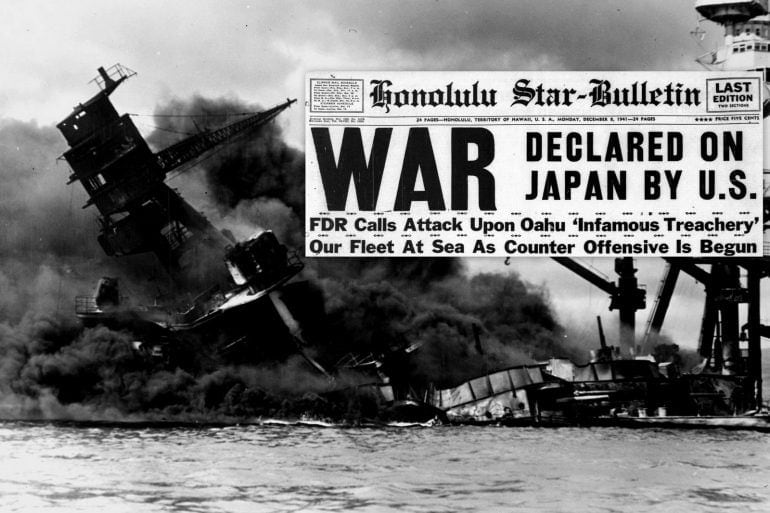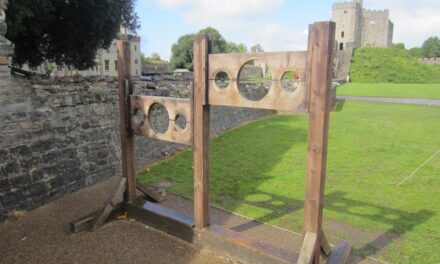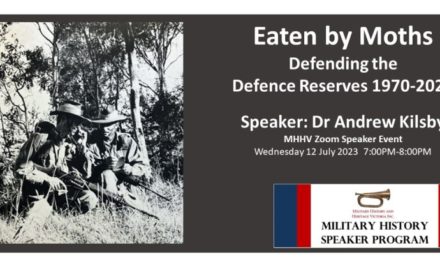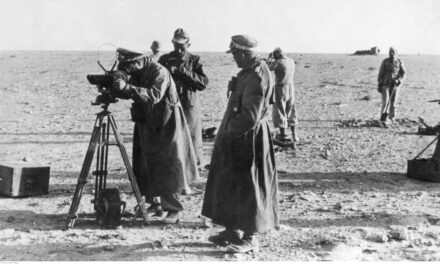PEARL HARBOR AND AMERICA’S ENTRY TO WAR
The commemoration of the 80th anniversary of the attack on Pearl Harbor also marks the United States’ entrance into the Second World War, forever changing the course of the ultimate conflict.
Reading time: 7 minutes
By Michael Vecchio
“Yesterday, December 7, 1941—a date which will live in infamy—the United States of America was suddenly and deliberately attacked by naval and air forces of the Empire of Japan”
United States President Franklin D. Roosevelt’s declaration before a joint session of Congress has now become one of the most famous speeches in American history; but beyond its poetic and even patriotic significance, his words became the justification for America’s long-awaited entrance into the Second World War.
The 80th anniversary of the attack on Pearl Harbor is thus significant in many ways; not only was it a demonstration of a carefully planned and executed act of war, but it signaled the full involvement of the United States in the deadliest conflict in world history. America’s presence would alter the Second World War’s trajectory, and ultimately led to arguably the most infamous act of war ever witnessed: the atomic bomb.
The United States’ arrival was one that many European leaders had been clamouring for, particularly Winston Churchill. In his own famous speech “We Shall fight” he had notably invoked that “in God’s good time, the New World, with all its power and might, steps forth to the rescue and the liberation of the old.” Indeed the American declaration of war against Japan, meant that by extension it was at war with its allies in the Tripartite Pact, that included Nazi Germany and Fascist Italy.
READ MORE: THE COLD WAR, CHURCHILL’S IRON CURTAIN, AND THE POWER OF IMAGERY
The end of 1941 was near and total war had been raging for over two years. For the Axis powers and in particular Hitler, the objective of complete domination had been until that point largely achieved. With an aggressive Japanese Empire carving out its own ambitions in the East, it truly was as Churchill once more declared our “Darkest hour”. The presence of the United States in the war effort was greatly anticipated. Yet despite repeated pleas to join, and increasing pressure from abroad and at home, President Roosevelt’s White House continued to dance around the notion of entering the war.
Until that infamous day….. December 7, 1941. The attack on the Pearl Harbor naval base in the then territory of Oahu, Hawaii, was both unexpected and catastrophic. 353 Japanese aircraft attacked the American naval base beginning around 7:50 AM; with an arsenal of torpedo and dive bombers, Imperial Japan caught the Americans completely unprepared, sinking four of the eight battleships present and destroying nearly 200 US aircraft. A total of 2,403 American casualties resulted including 68 civilians. For the Japanese attackers, losses were substantially lighter losing only 29 aircraft and 64 men.
READ MORE: THE PATH TO PEARL HARBOR
Years of tension with an increasingly militarized Japan culminated in the attack; but while the specific assault on Pearl Harbor was a surprise, the act of a Japanese attack should not have been. Japan’s aggressive jingoism and territorial ambitions had been at odds with the United States for many years, particularly with an American presence in Hawaii and the Philippines. By 1931, Japan’s relationship with the democratic West only further deteriorated with the Empire’s invasion of Manchuria; in 1937 an additional expansion into China led to the Second-Sino Japanese War. With the rising Nazi threat in Europe and Japan’s expansionist behaviour in the East, war did indeed seem inevitable, even if the United States was committed to remaining neutral.
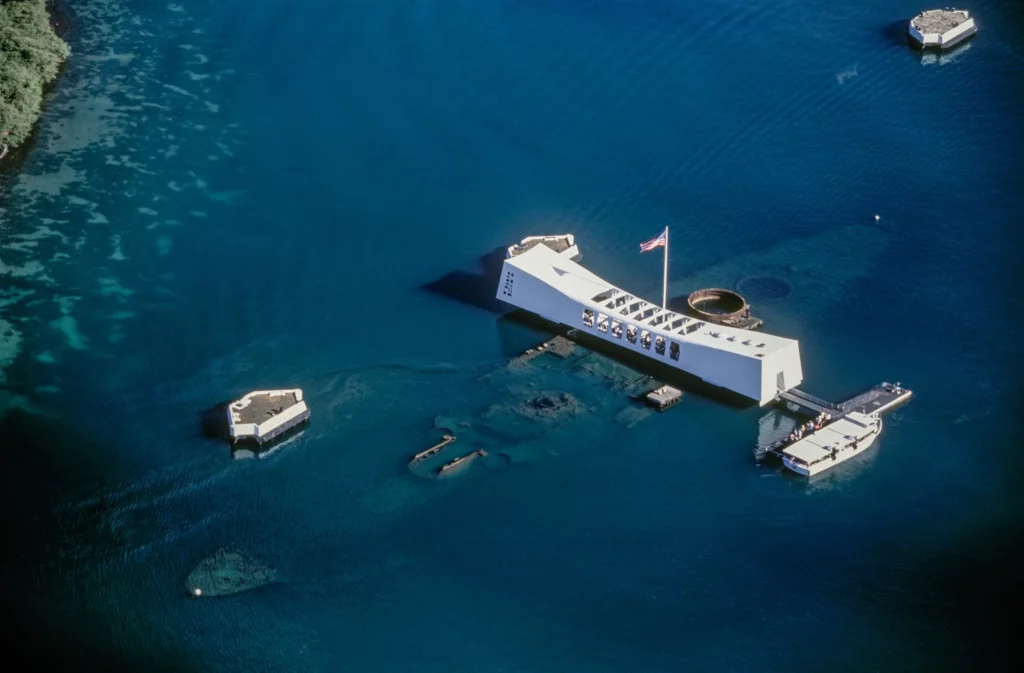
A series of diplomatic and economic manoeuvres attempted to discourage any further Japanese hostility, without aggressively declaring an all-out war; Congress approved the halting of the shipping of airplanes, parts, and gasoline to Japan, while President Roosevelt encouraged American companies to cease providing any “implements of war” to the island nation. Yet these so-called preventative measures failed to quell Japan, and it further invaded French Indochina in the Pacific in 1941. In a show of solidarity with France, the US ceased oil exports to Japan, as Roosevelt warned that America was prepared to act if further aggression was displayed.
In this the US negotiators had fundamentally misunderstood the Japanese aims. Japan wished to be respected as an equal of the European empires and was prepared to act militarily to achieve this. Japan had done this before, instigating the Russo-Japanese War when Russian expansion into Manchuria and Korea impinged on Japanese colonial ambitions. The US negotiators believed that an embargo of Japan would force them to come to the negotiating table. The Japanese saw the embargo as meaning they would have to attack the Americans and Europeans in order to secure their supply of oil and other raw materials.
Meanwhile in Europe, the Second World War continued in disastrous fashion as the Wehrmacht overtook many of its enemies including Poland, Netherlands, Denmark, and of course France. America’s presence was needed, but before Roosevelt would commit to Churchill and the other leaders, Japan made the decision for them.
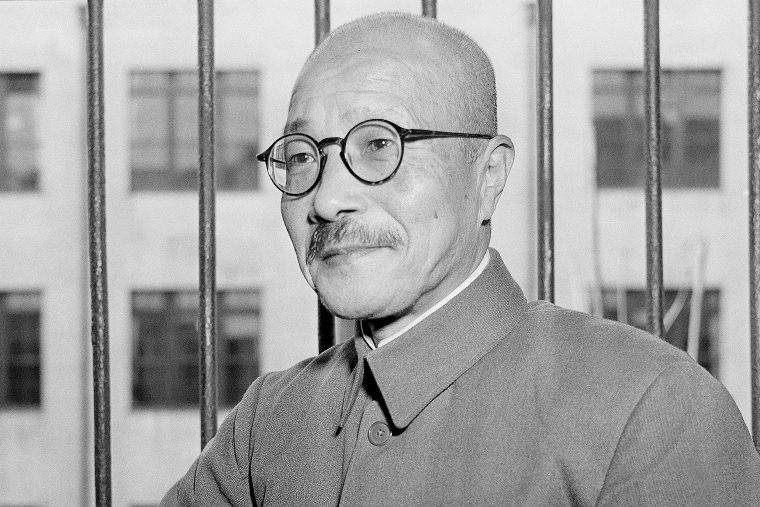
With the attack on Pearl Harbor, Japan left no doubts that its imperialist agenda would not be stalled by American sanctions; war was the only route. The day after the attack, December 8, Japanese Prime Minister Hideki Tojo formally declared war on the United States and Britain, who retaliated with their own declarations. President Roosevelt’s “date of infamy” speech was welcomed by many Americans, and the vote in Congress to declare war was nearly unanimous, voted against only by one-member, Representative Jeannette Rankin.
This was a similar approach to the way Japan instigated the Russo-Japanese War, where they launched a surprise attack on the Russian fleet at anchor in Port Arthur prior to a declaration of war. Another instance where politician’s knowledge of history could have been better!
READ MORE: THE MAN WHO ORDERED PEARL HARBOR: HIDEKI TOJO
The attack on Pearl Harbor was just one of a series of co-ordinated Japanese attacks across the Pacific. Within days the Japanese had attacked Hong Kong, Malaya, Sunk the Royal Navy Task Force Z, the Philippines, Guam and Wake Island. The planning and preparation involved in these actions shows how effective the Japanese military was. No other military prior or since has managed to execute co-ordinated invasions over such vast distances.
On December 11, Nazi Germany and Italy declared war on the United States, who again reciprocated. The United States was now officially and fully involved in the Second World War, taking on the burden not only of the Pacific Theatre against Japan, but the European struggle against the Nazis. The entrance of America was indeed the turning of the tide in the Allied war effort, and the United States was a pivotal figure in D-Day operations, the liberation of Italy, and the eventual defeat of Hitler.
In the Pacific, the war with Japan would lead to numerous and bloody battles including Midway (six months after Pearl Harbor), Guadalcanal, and of course the widely commemorated Battle of Iwo Jima. It all came to an end with the controversial development of nuclear weapons and the Manhattan Project; the only time in history that nuclear bombs have been used in warfare.
READ MORE: SIX OF THE BEST WORLD WAR II FILMS
Ultimately although various episodes of the Second World War are rightfully commemorated, the attack on Pearl Harbor remains amongst the most pivotal moments of the conflict; as an isolated event and for its long-term repercussions towards the end result of the War, the bombing of the peaceful Hawaiian harbor continues to be a watershed moment of global history.
Podcast Episodes on this topic
Articles you may also like
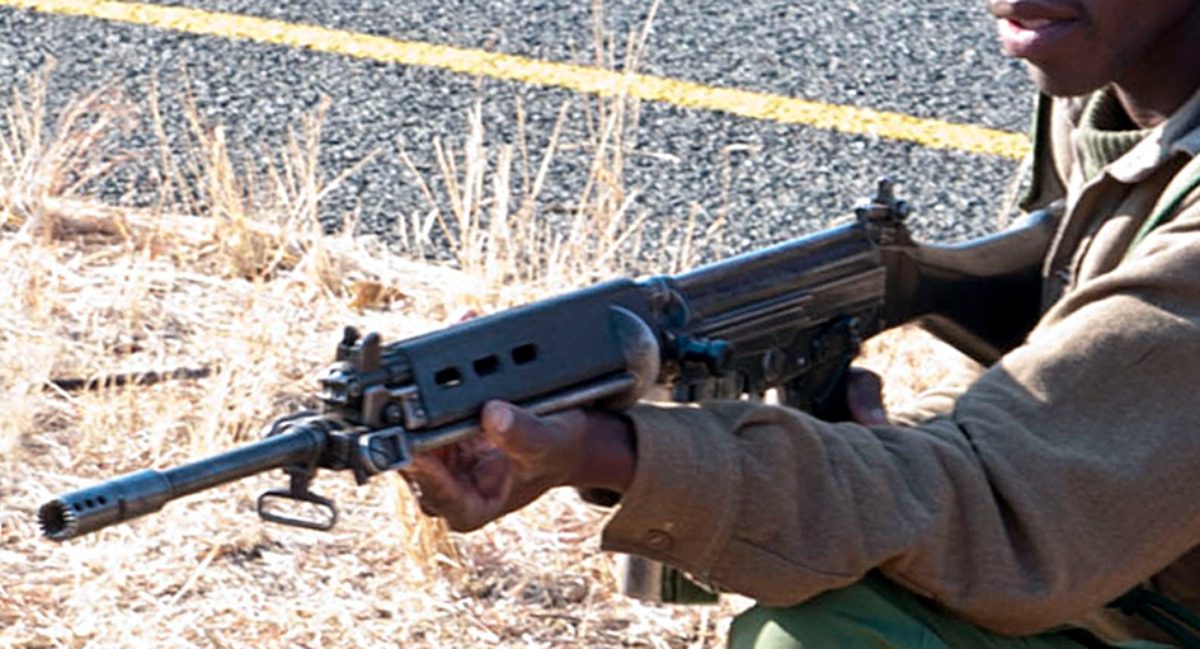
The R1 – South African Bush Rifle
Reading time: 9 minutes
In the wake of the rise of the Soviet Union’s AK-47 and the USA’s litany of rifles during the Cold War, South Africa needed a modern automatic service rifle. After trialling several different guns, the South African government settled on the Belgian FN FAL battle rifle. As a result, the “Rifle R1” was born – the bush gun of Southern Africa.
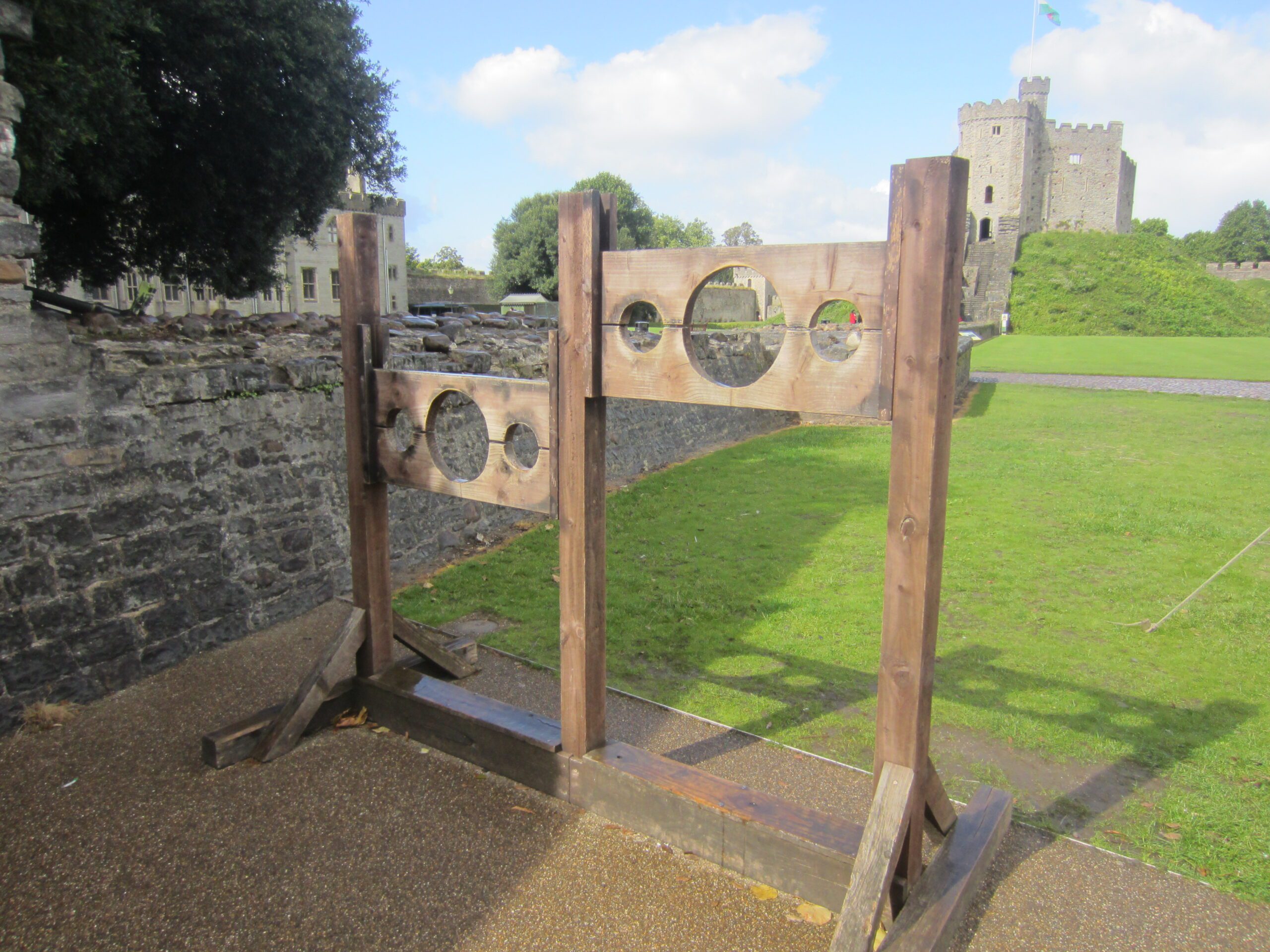
Law enforcement in medieval England
Reading time: 6 minutes
The middle ages are often associated with lawlessness and brutality. Along with knights in shining armour, the images we often associate with the period are torture devices like the rack, or public punishment like the stocks. Was that really how law and order were maintained in the Middle Ages?
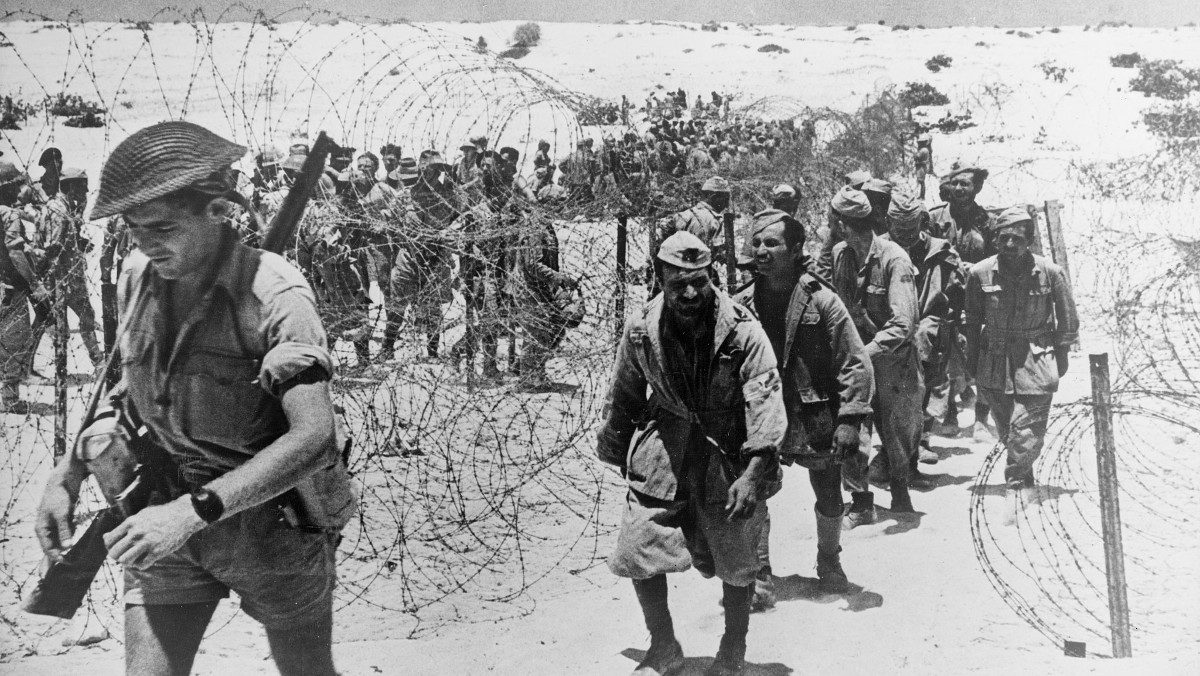
First Battle of El Alamein: Australia Holds the Line
Reading time: 9 minutes
The North African campaigns of WW2 were two years of back and forth action across Libya and Egypt, with offensives, counteroffensives and sieges throughout and Australians in the thick of it. When the end eventually came to this seesaw action at El Alamein in 1942, again it was Australians who held the day; in this article we’ll see this pivotal battle through their eyes.
The text of this article was commissioned by History Guild as part of our work to improve historical literacy. If you would like to reproduce it please get in touch via this form.

